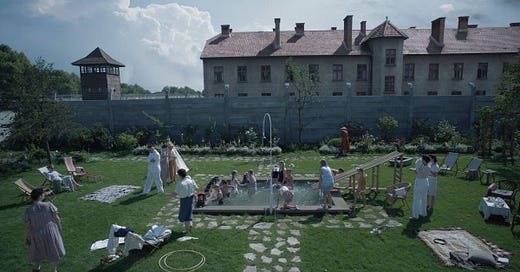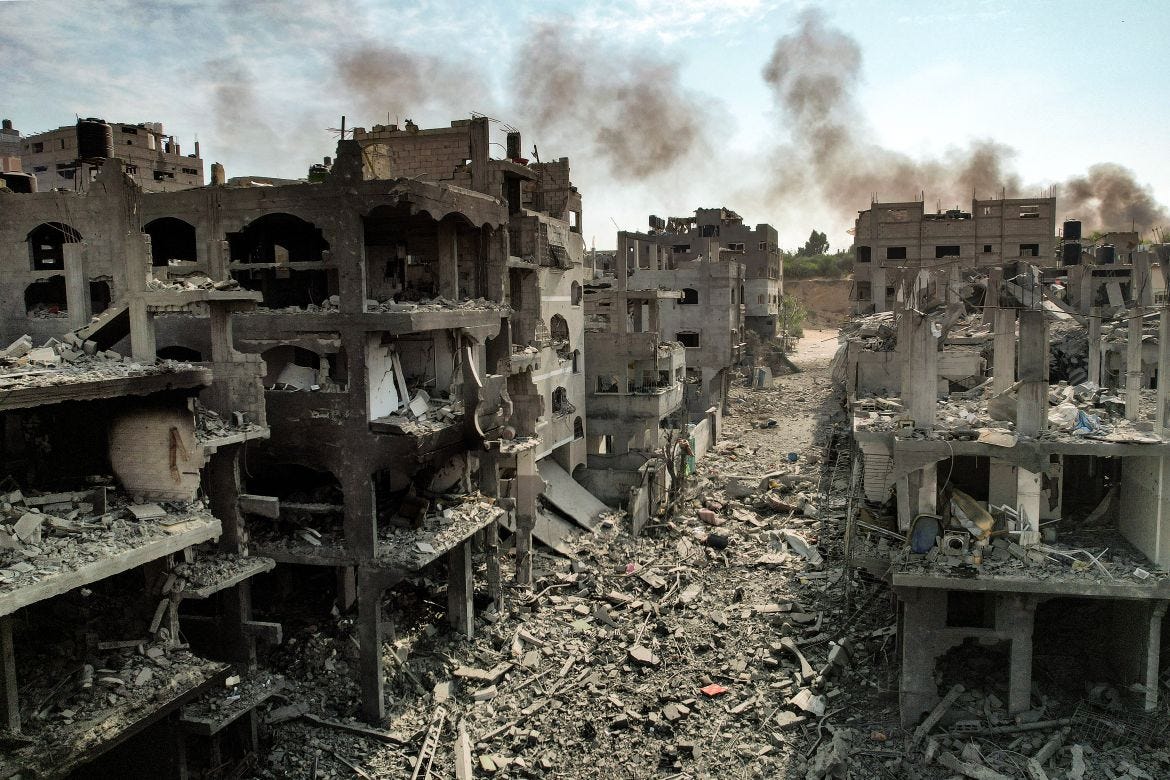Prologue
As we see:
Claus unties the blindfold and whips it off his father. Rudolf blinks in the bright summer morning sun and sees Hedwig, and the other children, also dressed for school, standing on the lawn, a gleaming, wooden three-seater CANOE in front of them.
ALL: Surprise! Happy birthday!1
As we read:
“Civilized man no longer feels this way in regard to killing enemies. When the fierce struggle of this war will have reached a decision every victorious warrior will joyfully and without delay return home to his wife and children, undisturbed by thoughts of the enemy he has killed either at close quarters or with weapons operating at a distance.”2
Chapter I
In 1915, Freud expressed his pessimistic, yet surprised, realization of how capable of destruction human beings are after observing, in the First World War, that there were no boundaries to aggressiveness towards the other and their culture.3
By “other” you can imagine other race, other religion, other gender, other country and so on, in an unlimited list of differences.
Freud concluded that intelligence was not a shield for reason or reflection, as it was bound to affects, fantasies and identifications. Facts matter less than beliefs—the latter, highly invested with certain affects, like fear or hatred, occupy the place of the truth and serve as a pretext for violent actions. Such emotions and ideas can prove to be even deadlier when shared by a mass—“violence overcome by the transference of power to a larger unity, which is held together by emotional ties between its members”, he writes in 1932, in a letter response to a concerned Einstein.4
In the prologue, we saw Freud addressing civilized men who can kill their enemies and go on living, unaffected by the brutality they committed. In the animal kingdom—from which we, as human beings, could never exclude ourselves—creatures traditionally settle conflicts with violence. But only the animal-human could do so feeling shame, disgust, regret or enjoyment.
Here lies the irony: humans keep killing, in cruel, shameless ways, and whenever they do so, we say they are having an inhumane attitude. The inhumane, however, is precisely our most human experience. No animal ever reached the levels of atrocity, indifference and cruelty we see in humans, the limit of violence depicted to chilling effect in Jonathan Glazer’s recent film, The Zone of Interest.
Chapter II
Throughout history we have numerous accounts of the production of dehumanization as a way of collectivizing and potentializing the destruction of unwanted lives. Let’s look at genocides, thinking of the ones that happened in Nazi Germany (from 1933 to 1945) and Rwanda (1994), and the one that is happening currently in Palestine. In all of them, language carried out and built the desire (and commitment) to eliminate the other as a safeguard for a threatened society, a society that could only restore its set of values with the radical exclusion of the other that is turned into an object.
For all of this to happen, there were leaders, powerful instructions, incitements, of course. Other forces—hatred, the reproducible idea of taking away someone’s humanity, the cowardly silence of institutions, the indifference to the pain of others—played their role, too. Chained together, these things reveal dehumanization as a form of social bonding, instead of a gruesome anti-social exception in a virtuous humanity.
Chapter III
Freud died in 1939, as a Jew exiled in England. Nazism had taken over Austria, among other countries, on its ascent to the totalitarian power that wrought irreversible damage on Europe. More than a decade before, in 1926, painfully living with a malign tumor in his jaw, Freud conceded in an interview5 that meanness could only be a product of civilization:
“Meanness is man’s revenge upon society for the restraints it imposes. This vengefulness animates the professional reformer and the busybody… Man’s most disagreeable habits and idiosyncrasies, his deceit, his cowardice, his lack of reverence, are engendered by his incomplete adjustment to a complicated civilization.”
Living in society has a high cost, Freud suggests. Discontent emerges from coexistence because we must all sacrifice pleasure, aggression and renounce our desires to live together. Our aggression, though, fights for expression. It must go somewhere.
Final considerations
By this point we should be aware that the civilization evoked by Freud is negotiated by the unconscious; culture is built upon conflict, resignations, satisfaction, and dissatisfaction. One cannot have everything; one cannot do everything one wishes.
Much due to the Enlightenment and colonialist thinking, brutal expressions of violence usually refer to someone considered a ‘barbarian’. This distinction places the barbarian in opposition to the reasonable, civilized one; it allows modernity to prevail. Quite an absolving claim for civilization, which can keep improving its practices and destroying otherness.
As long as the aggressiveness we see in bombings, torture and lynchings is attributed to the savages, barbarians and monsters, instead of the enlightened ones whose savagery is unmatched, we are not holding human beings accountable for their actions. In other words, with a realistic yet transformative Freud we can conclude that we must always prevent and put a stop to dehumanization of vulnerable otherness. However, we might as well stop dehumanizing the worst representatives of humanity. By denying their capacity for violence, strangely, we dehumanise them too.
Listen to our interview with Amanda here.
Footnotes
Scene (scripted) from the film The Zone of Interest, by Jonathan Glazer, based on the homonymous novel by Martin Amis. Retrieved from https://deadline.com/wp-content/uploads/2024/01/The-Zone-Of-Interest-Read-The-Screenplay.pdf
Sigmund Freud, “Reflections on war and death”, published originally in 1915.
Idem.
Why war? Einstein and Freud, 1932.
An interview with Freud, by George Sylvester Viereck. Available at http://www.psychanalyse.lu/articles/FreudInterview.pdf








